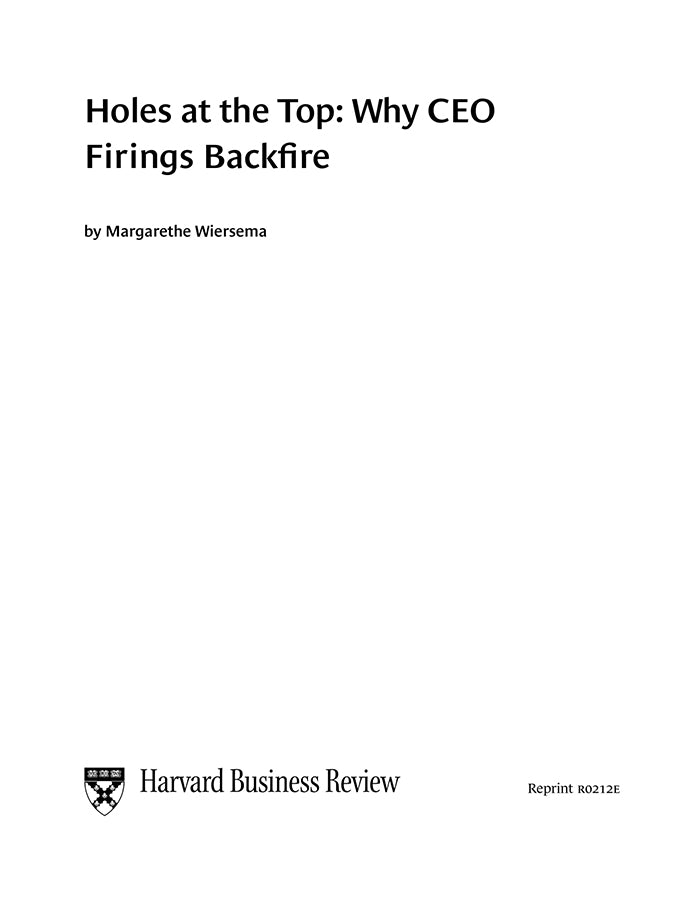Holes at the Top: Why CEO Firings Backfire
受取状況を読み込めませんでした
For better or worse, investors now view chief executives as the primary determinant of corporate performance. But the reality is that most companies perform no better after they dismiss their CEOs than they did in the years leading up to the dismissals. Worse, the organizational disruption created by a rushed firing can leave a company with deep and lasting scars. The blame for such poor results, the author argues, lies squarely with boards of directors. Boards often lack the strategic understanding of the business necessary to give due diligence to choosing a replacement CEO. Concern over restoring investor confidence quickly--rather than doing what's right for the company--drives the selection process. And all too often, companies continue to be dogged by the same old problems after the new CEOs come on board. But a good board can make a CEO replacement pay off if its members first develop a better understanding of the business context, worry less about pleasing the investment community and more about a replacement's strategic fit, and take an active role in overseeing the new CEO and the performance and direction of the company. In the long run, such approaches are likely to foster stability at the helm--making it less likely that a company will have to fire its CEO in the first place.
【書誌情報】
ページ数:12ページ
サイズ:A4
商品番号:HBSP-R0212E
発行日:2002/12/1
登録日:2012/3/28


